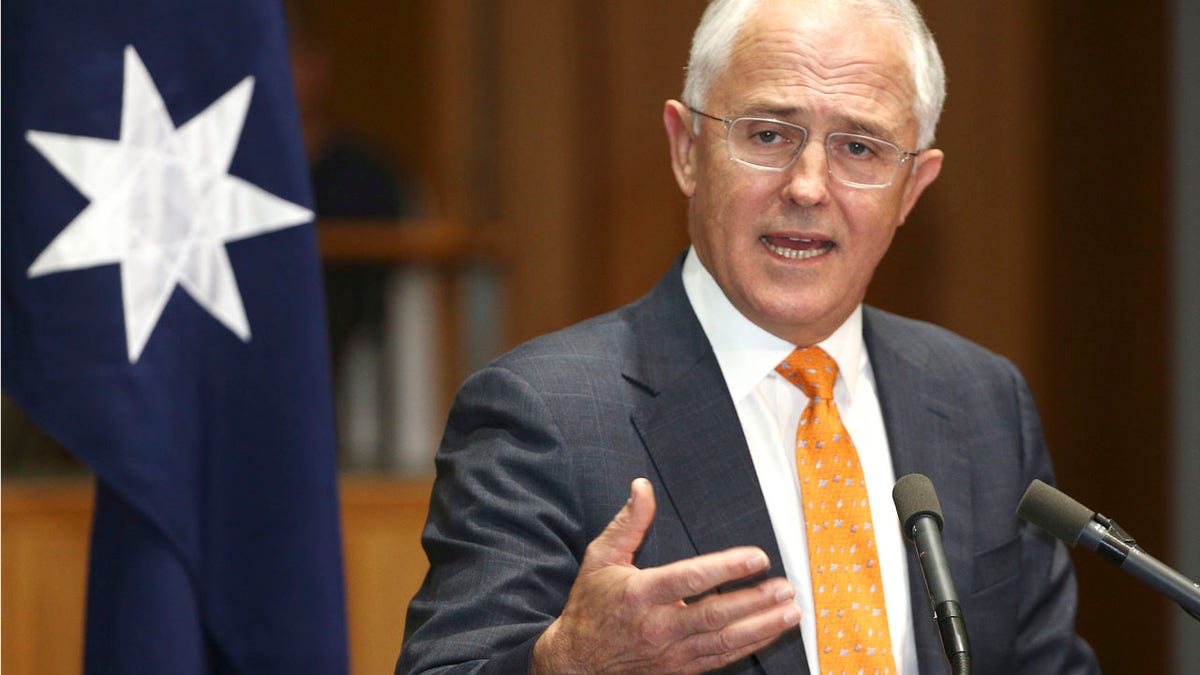
FILE - In this May 8, 2016 file photo, Australian Prime Minister Malcolm Turnbull speaks to the media during a press conference at Parliament House in Canberra, Australia. (AP)
Australia's prime minister on Wednesday would not say how many refugees from Pacific Island camps would be resettled in the United States after President Donald Trump's administration said "extreme vetting" would be used to check their cases.
Prime Minister Malcolm Turnbull said that during a weekend call Trump had agreed to keep a promise by the Obama administration resettling an undisclosed number of mostly Muslim refugees.
Australia refused to accept the refugees and instead pays for them to be housed on the nations of Nauru and Papua New Guinea. More than 1,200 asylum seekers are held on Papua New Guinea and Nauru.
White House spokesman Sean Spicer told reporters that the refugees would have “extreme vetting applied to all of them” in hopes of reducing the threat posed to the U.S. by terrorism.
Turnbull would not say how many refugees the U.S. could end up accepting.
"We don't cut corners or compromise on keeping Australians safe and the U.S. government has exactly the same attitude," Turnbull told reporters. "They will do their own extremely rigorous vetting of people that are the subject, or potentially the subject of the agreement.”
Australia is under mounting criticism over the plight of desperate asylum seekers, some who have been on the islands for more than three years. Almost 400 who came to Australia for medical treatment and then refused to return to the islands are also eligible for resettlement to the U.S.
Australia has all but stopped refugee boat arrivals by refusing to allow any to stay. But Iran won't take back its citizens unless they return voluntarily and most refugees have refused Australia's offer to resettle permanently in Cambodia or Papua New Guinea.
The United States is an attractive option for most asylum seekers who would otherwise prefer to languish in island camps in the hope that Australia will eventually relent and take them in.
The Associated Press contributed to this report.







































